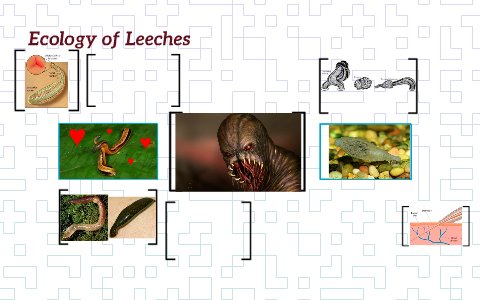
Leeches are often misunderstood, and that’s a real shame. Despite their somewhat creepy reputation, they contribute significantly to ecological balance. Think of them as the unsung heroes of the wetland ecosystems, quietly doing their part in ways we might not fully appreciate. Let’s dive into the fascinating world of leeches and discover their ecological importance.
What Exactly Are Leeches?
Leeches are segmented worms, and they belong to the class Hirudinea. There are over 700 known species, and they come in various shapes and colors. Most people are familiar with the common medicinal leech, but many are not aware that not all leeches are bloodsuckers. Some are actually scavengers or detritivores, meaning they feed on decaying organic matter.
Leeches have a unique body structure that helps them in their role in ecosystems. They’re equipped with suckers at both ends, which allow them to firmly attach to surfaces or hosts. This adaptation is crucial when it comes to their feeding habits. Some leeches can consume large amounts of blood from fish or amphibians, while others feast on algae and decomposing plant material.
So why should we care about these slimy little creatures? Their feeding habits contribute to nutrient cycling and help maintain water quality, both of which are vital for ecosystem health. Let’s dig deeper into their specific roles.
Leeches As Nutrient Cyclers
Here’s the thing: leeches help recycle nutrients in their habitats. When they consume decaying organic matter, they break it down into simpler forms that are easier for plants and microorganisms to absorb. This process enriches the soil and boosts plant growth, which is crucial for maintaining a balanced ecosystem.
Think of leeches as nature’s recyclers. Just like recycling paper and plastic keeps landfills from overflowing, leeches prevent dead matter from piling up in aquatic systems. This breakdown of organic material also helps in the formation of nutrient-rich sediments, benefiting various organisms that rely on healthy soil.
Furthermore, when leeches excrete waste, they release nutrients back into the environment. This organic matter provides essential building blocks for many types of plants and supports a diverse array of animal life. It’s a cycle of life that illustrates how interconnected everything is in nature.
Leeches And Water Quality
You might be wondering how leeches contribute to water quality. Well, their presence can indicate the health of freshwater ecosystems. When leeches thrive, it often means the environment is balanced in terms of nutrients and the absence of pollutants.
Leeches help keep water bodies clean by feeding on detritus and algae. In doing so, they control excess organic matter, which can otherwise lead to issues like algal blooms. These blooms deplete oxygen levels in the water, causing harm to fish and other aquatic life. By maintaining a healthy balance, leeches act as natural water filters, promoting clearer and cleaner waterways.
Moreover, their interactions with other organisms—like fish and amphibians—create a balanced food web, essential for a thriving ecosystem. In short, healthy leech populations can be a good sign of clean water.
The Role Of Leeches In The Food Web
Leeches aren’t just quietly going about their business; they’re also an important food source for many animals. Birds, frogs, and even some fish relish leeches as part of their diet. This makes leeches crucial players in the food web.
By serving as prey, leeches help maintain the population dynamics of their predators. If leeches were to disappear, many species that depend on them for food could struggle to survive, leading to unforeseen consequences throughout the ecosystem. So, they play a pivotal role in sustaining biodiversity.
It’s like a game of dominoes—knock one piece out, and the whole line could come crashing down. Healthy leech populations help support a rich tapestry of life, demonstrating how every organism, no matter how small, has its role to play.
Medicinal Uses Of Leeches
Leeches have been used in medicine for centuries, and this practice is still relevant today. The medicinal leech, *Hirudo medicinalis*, is used in treatments like bloodletting, which can reduce swelling and improve blood flow in certain medical situations.
But their ecological importance goes beyond just medicine. By promoting healthy ecosystems, leeches indirectly contribute to human health. Cleaner water systems and richer biodiversity can yield healthier fish populations and more robust plant life, which are essential for food security.
So, while leeches might seem less than appealing at first glance, their contributions to biodiversity and human health are noteworthy. They embody the idea that everything in nature has a purpose, even the creatures that might make us squeamish.
Conservation Concerns And Future Implications
Unfortunately, leeches, like many organisms, face threats from habitat destruction, pollution, and climate change. These factors can lead to declining leech populations, which can be detrimental to the ecosystems they support.
Conservation efforts are essential to ensure that leeches remain a part of our natural world. Protecting wetlands, ponds, and rivers helps maintain stable conditions for leech populations to thrive. Educational initiatives can raise awareness about their ecological importance, promoting a greater understanding of how every creature contributes to the bigger picture.
Here’s the thing: focusing on leech conservation could also lead to broader environmental benefits. By safeguarding their habitats, we’re also protecting countless other species and maintaining the delicate balance of our ecosystems.
Leeches might not be the first creatures that come to mind when we think about biodiversity, but they wield significant ecological power. From recycling nutrients to maintaining water quality and supporting food webs, these creatures contribute to the health of ecosystems in ways we often overlook.
So, the next time you find yourself by a serene body of water, take a moment to appreciate the complexity of life swimming beneath the surface—especially the leeches. They may be slimy little worms, but they play a big role in maintaining the balance of our natural world. By protecting these unsung heroes, we pave the way for a healthier environment for all of us.
